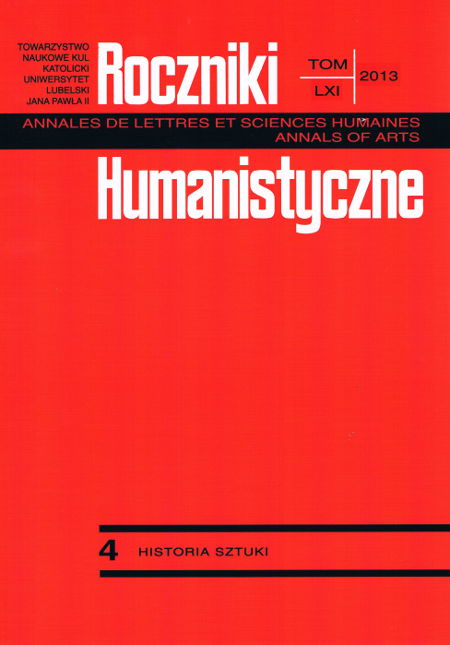Concordia Novi et Veteris Testamenti w zestawieniach ilustracji: uderzenia młotków Tubal-Kaina oraz wbijania gwoździ w ręce i nogi Chrystusa /.../
The Concordia Novi et Veteris Testamenti in its juxtaposition of illustrations: the hitting of the hammers of Tubal-Kaina and the hammering /.../
Author(s): Stanisław KobielusSubject(s): Cultural history
Published by: Towarzystwo Naukowe KUL & Katolicki Uniwersytet Lubelski Jana Pawła II
Keywords: medieval art; passion; blacksmity; Tubal-Kain
Summary/Abstract: In the Gospels relating the passion of Christ, there is no description of the act of nailing Him to the cross with nails, but there are clearly other biblical testimonies that nails were used for the crucifixion. In many representations, parallel to the nailing of the members of Christ to the cross or raising it with His body, we find placed alongside it, the scene of hammering iron with hammers by Tubal-Kain for the purpose of drawing out the appropriate tones. He hits on the anvil, while Jubal makes a notation of the tones. With this type of illustration, the sound of the hammers during the crucifixion of Christ meets with the sound of the hammers hitting the anvil. Hence, painting and music meet in the iconography of the crucifixion of Christ. It was a sort of Concordia Novi et Veteris Testamenti. In showing this prefiguration, there is also a going back to the history of Pythagoras. It was also an example for the functioning in the Middle Ages, and still later in the Renaissance, of the formulation of the Concordia divi Moysi et divini Platonis.
Journal: Roczniki Humanistyczne
- Issue Year: 61/2013
- Issue No: 04
- Page Range: 5-28
- Page Count: 24
- Language: Polish

